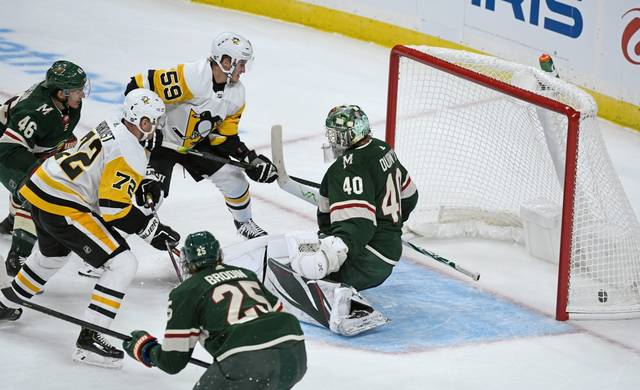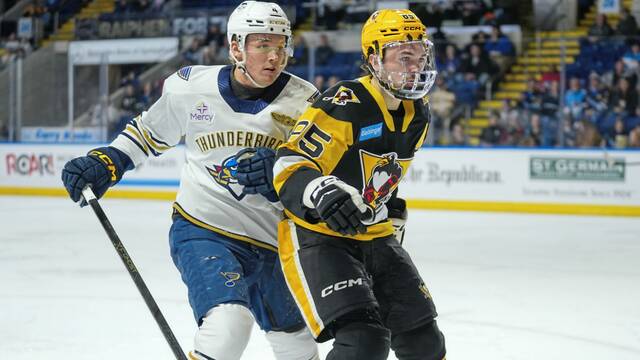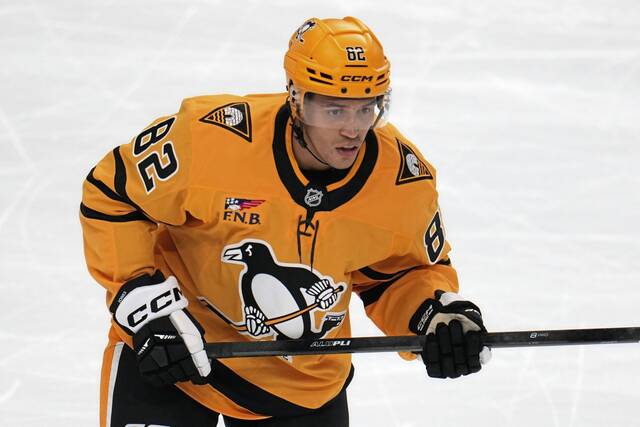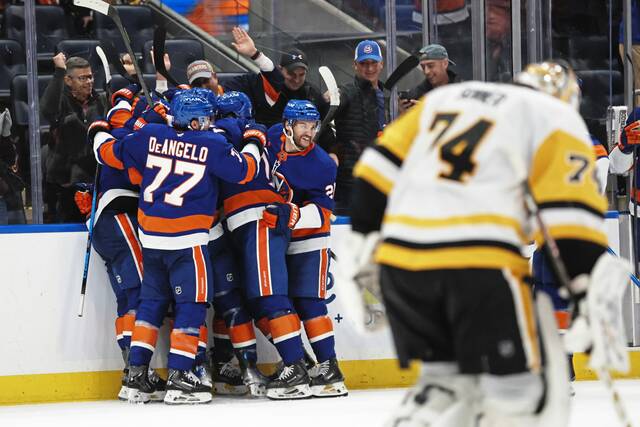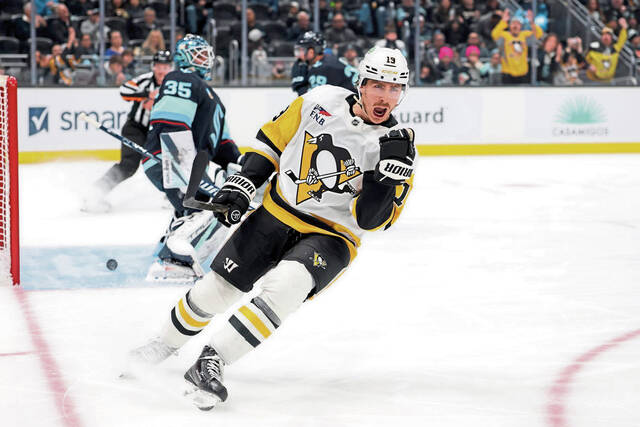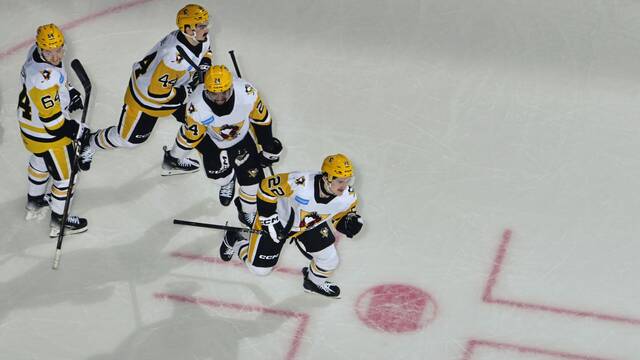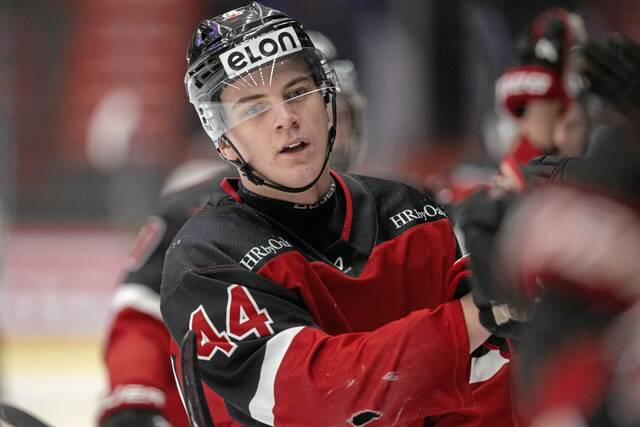TAMPA, Fla. — The Penguins had one of the NHL’s best power plays last season with a conversion rate of 24.6%.
And why wouldn’t they? With a handful of scoring champions and All-Stars at their disposal, the Penguins’ power-play was a clear and present danger to every NHL goaltender.
Even their own.
Despite all that skill and acumen, the Penguins surrendered a league-high 15 short-handed goals last season.
Coach Mike Sullivan regularly bemoaned the players who composed his top power-play squad, including former forward Phil Kessel, indirectly, for not “recognizing the danger.”
This season, that danger rarely has been seen.
Through the first 10 games of the season, the Penguins only have surrendered one short-handed goal, an empty-netter in a 3-0 loss at home to the Vegas Golden Knights.
Much of that has been because of a stronger commitment to retrieving loose pucks.
“It’s always something you talk about,” forward Sidney Crosby said. “Guys know it’s important. So it’s just a matter of trying to outwork the penalty kill. It’s something you need to constantly remind yourself. If you’re a man up, you try to use your skill, but sometimes it’s just (about) competing and winning those battles, simplifying everything.”
The best example of winning a puck battle this season came from Crosby.
During the late stages of a 7-4 road win against the Minnesota Wild on Oct. 12, forward Jake Guentzel fired a slap shot from above the left circle that deflected to the far corner. Crosby and Wild defenseman Jared Spurgeon — one of that team’s top players — wrestled to control a puck along the boards. Spurgeon won possession, but Crosby muscled him into a giveaway at the right circle. Penguins forward Patric Hornqvist darted and chopped a pass to the crease, where Guentzel tapped it in for a goal.
“Jake Guentzel’s goal is a perfect example of that,” Sullivan said. “Sid jumps on the puck. (Hornqvist) is a part of it. Everybody is participating in that aspect of the power play. Then when we end up with the puck back, they have the instincts to act on it. That’s something that has helped. The guys on the power play are doing a terrific job. They’re working together. They’re committed. It’s a collective effort. When they work together the way they do, they’re a dangerous power play.”
Working hard for a loose puck isn’t a novel concept. But it is one that needs to be reiterated from time to time.
“It’s something we talk about with our power play a lot. But having said that, we’ve talked about that for a long time. It’s an important aspect of being a good power play. It’s increases your opportunities. Sometimes, you can create scoring chances right off a retrieval because teams are usually not in a defensive posture because they are in a pressure mode. If you can win a puck and make a quick play, usually a Grade-A opportunity presents itself.”
Since Kessel was traded to the Arizona Coyotes, the Penguins have moved from a four forward/one defenseman alignment with their top power-play unit to three forwards and two defensemen, usually with Kris Letang and Justin Schultz on the blue line.
Letang was typically the only defenseman on the top group last season and often was left alone to defend a short-handed offensive attack. With Schultz, Letang suggests he’s more comfortable on the power play.
“I know that he’s back there,” Letang said. “Sometimes, like if I want to go forward or I want to get a puck, I know that he’s going to be there.”
The player not there is forward Evgeni Malkin. The superstar has been sidelined since suffering an undisclosed injury Oct. 5. Letang thinks that has led to a more sedulous approach to the power play.
“I think it’s the personnel that we have on right now,” Letang said. “That’s what happens. We know that we don’t have (Malkin) or (forward) Alex (Galchenyuk). We think that if we simplify things and shoot the puck more, we have to retrieve it, obviously. A little bit more of a hard-working power play.”
The Penguins haven’t been nearly as productive on the power play this season, with a success rate of 18.2% entering Wednesday’s road game with the Tampa Bay Lightning.
But the Penguins have been pleased with their approach, starting with puck retrievals.
“The penalty killers these days, they work so hard,” Schultz said. “If you’re not working as hard or harder than them, you’re not going to get the puck. You’re going to be chasing it all the time. Our forwards have done a really good job of winning those battles and releasing the pressure and getting it up to us (defensemen). If we keep doing that, we’re going to have success.”


